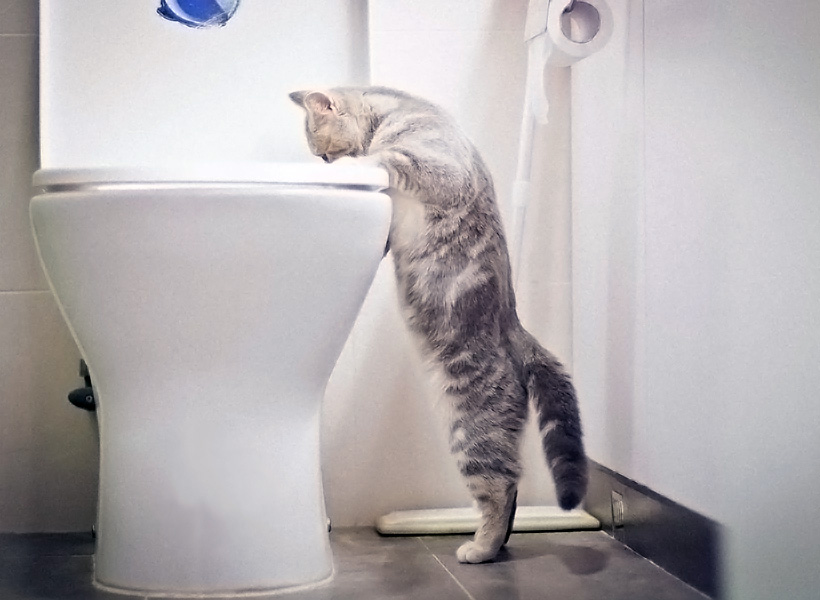Why Flushing Cat Poop Down Your Toilet Is Bad - Suggestions for Correct Handling
Why Flushing Cat Poop Down Your Toilet Is Bad - Suggestions for Correct Handling
Blog Article
What're your concepts about Don’t flush cat feces down the toilet?

Intro
As pet cat proprietors, it's important to be mindful of just how we dispose of our feline friends' waste. While it might appear hassle-free to flush pet cat poop down the toilet, this practice can have destructive repercussions for both the environment and human health.
Alternatives to Flushing
Thankfully, there are much safer and more liable ways to dispose of feline poop. Consider the adhering to options:
1. Scoop and Dispose in Trash
One of the most common approach of taking care of pet cat poop is to scoop it into a biodegradable bag and throw it in the garbage. Make sure to use a specialized litter inside story and take care of the waste quickly.
2. Use Biodegradable Litter
Select eco-friendly feline litter made from products such as corn or wheat. These trashes are environmentally friendly and can be securely dealt with in the trash.
3. Hide in the Yard
If you have a lawn, take into consideration burying cat waste in an assigned area away from veggie yards and water resources. Make certain to dig deep adequate to avoid contamination of groundwater.
4. Mount a Pet Waste Disposal System
Purchase a pet dog waste disposal system particularly made for cat waste. These systems utilize enzymes to break down the waste, lowering odor and ecological impact.
Health and wellness Risks
Along with ecological concerns, flushing cat waste can likewise present wellness risks to humans. Feline feces might have Toxoplasma gondii, a parasite that can cause toxoplasmosis-- a potentially serious health problem, specifically for pregnant females and people with damaged body immune systems.
Ecological Impact
Purging pet cat poop presents hazardous pathogens and bloodsuckers into the water system, posturing a substantial threat to marine ecosystems. These contaminants can negatively impact marine life and compromise water quality.
Conclusion
Responsible pet possession expands past supplying food and sanctuary-- it additionally entails correct waste monitoring. By avoiding flushing cat poop down the toilet and opting for different disposal approaches, we can decrease our ecological footprint and protect human health and wellness.
Why You Should Never Flush Cat Poop Down the Toilet
A rose by any other name might smell as sweet, but not all poop is created equal. Toilets, and our sewage systems, are designed for human excrement, not animal waste. It might seem like it couldn’t hurt to toss cat feces into the loo, but it’s not a good idea to flush cat poop in the toilet.
First and foremost, assuming your cat uses a litter box, any waste is going to have litter on it. And even the smallest amount of litter can wreak havoc on plumbing.
Over time, small amounts build up, filling up your septic system. Most litter sold today is clumping; it is made from a type of clay that hardens when it gets wet. Ever tried to scrape old clumps from the bottom of a litter box? You know just how cement-hard it can get!
Now imagine just a small clump of that stuck in your pipes. A simple de-clogger like Drano isn’t going to cut it. And that means it’s going to cost you big time to fix it.
Parasitic Contamination
Believe it or not, your healthy kitty may be harboring a nasty parasite. Only cats excrete Toxoplasma in their feces. Yet it rarely causes serious health issues in the cats that are infected. Most people will be fine too if infected. Only pregnant women and people with compromised immune systems are at risk. (If you’ve ever heard how women who are expecting are excused from litter cleaning duty, Toxoplasma is why.)
But other animals may have a problem if infected with the parasite. And human water treatment systems aren’t designed to handle it. As a result, the systems don’t remove the parasite before discharging wastewater into local waterways. Fish, shellfish, and other marine life — otters in particular — are susceptible to toxoplasma. If exposed, most will end up with brain damage and many will die.
Depending on the species of fish, they may end up on someone’s fish hook and, ultimately on someone’s dinner plate. If that someone has a chronic illness, they’re at risk.
Skip the Toilet Training
We know there are folks out there who like to toilet train their cats. And we give them props, it takes a lot of work. But thanks to the toxoplasma, it’s not a good idea.

I have been very involved in How to Dispose of Cat Poop and Litter Without Plastic Bags and I'm hoping you appreciated my entry. Sharing is good. You won't know, you will be helping someone out. I praise you for your time. Please pay a visit to our site back soon.
Call Report this page